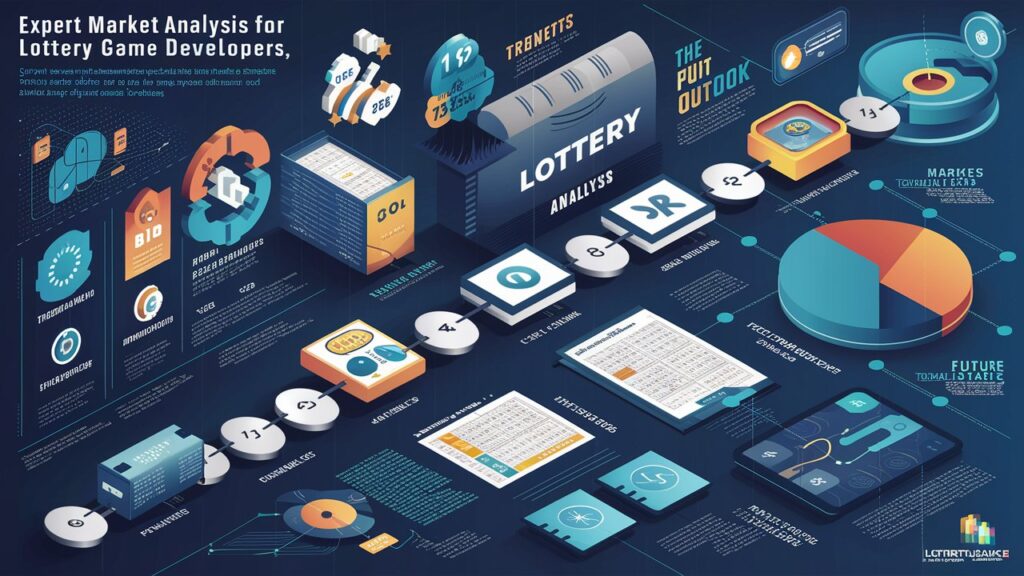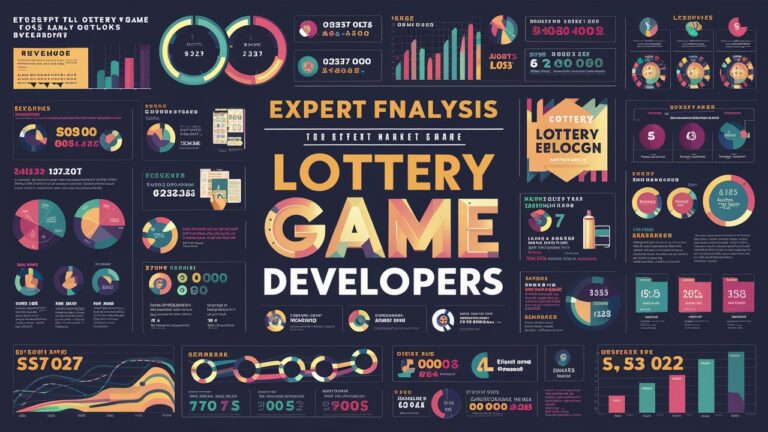Introduction
The global lottery industry is undergoing rapid transformation, driven by technological advancements, shifting consumer preferences, and regulatory changes. For lottery game developers, staying ahead in this competitive landscape requires more than creativity—it demands expert market analysis to identify opportunities, mitigate risks, and align products with market demands. This article delves into the critical role of market analysis in shaping the strategies of lottery game developers, exploring key trends, actionable insights, and future projections. Whether you’re a seasoned developer or a newcomer, understanding these dynamics is essential for success in an industry projected to exceed $380 billion by 2030.
1. The Growing Importance of Expert Market Analysis in Lottery Game Development
Expert market analysis has become indispensable for lottery game developers seeking to navigate an increasingly complex market. Traditional lottery systems are being eclipsed by digital platforms, mobile apps, and blockchain-based solutions, creating both opportunities and challenges. Market analysts provide granular insights into consumer behavior, regional regulatory frameworks, and emerging technologies like AI and VR. For instance, data revealing a surge in demand for instant-win games or social gaming features can guide developers in tailoring their offerings. By leveraging these insights, developers can optimize game mechanics, pricing models, and marketing strategies to resonate with diverse demographics, from millennials seeking engagement to older players valuing simplicity.

2. Key Trends Identified Through Expert Market Analysis
a) Digital Transformation and Mobile-First Platforms
Market analysts highlight the shift toward mobile lottery platforms, with over 60% of players now engaging via smartphones. Lottery game developers must prioritize responsive design, seamless UX/UI, and secure payment gateways to capture this audience.
b) Gamification and Social Integration
Modern players crave immersive experiences. Incorporating gamified elements—leaderboards, unlockable content, and multiplayer modes—enhances retention. Social media integration also fosters community-driven engagement, a trend validated by the success of apps like Jackpocket.
c) Regulatory Compliance and Responsible Gaming
Stringent regulations, particularly in Europe and North America, require developers to embed age verification, spending limits, and addiction-prevention tools. Expert analysis helps navigate these requirements while maintaining player appeal.
3. Leveraging Expert Insights for Competitive Advantage
To thrive, lottery game developers must adopt strategies informed by expert market analysis:
- Data-Driven Game Design: Analytics on player demographics and spending patterns inform themes, prize structures, and difficulty levels. For example, Asian markets favor games with cultural motifs, while Western audiences prefer high-jackpot draws.
- Personalization Through AI: Machine learning algorithms analyze player data to deliver personalized recommendations, boosting engagement.
- Cross-Platform Integration: Syncing lottery games with e-commerce platforms or streaming services expands reach.
- Sustainability and Transparency: Blockchain technology is gaining traction for its ability to ensure fair play and auditable results, addressing skepticism among younger players.
4. Future Outlook: Predicting the Next Wave of Innovation
Expert market analysis predicts several disruptive trends for lottery game developers:
- Metaverse and VR Lotteries: Virtual reality could redefine lottery experiences, allowing players to interact in 3D environments.
- Cryptocurrency Adoption: Bitcoin and Ethereum are emerging as payment options, appealing to tech-savvy users.
- Sustainability Initiatives: Eco-conscious players are driving demand for carbon-neutral lottery campaigns and digital-only tickets.
Developers who align with these trends will dominate the next decade, while laggards risk obsolescence.
Conclusion
In a sector where innovation and compliance intersect, expert market analysis is the linchpin of success for lottery game developers. By harnessing data on consumer trends, regulatory shifts, and technological advancements, developers can craft games that captivate audiences and withstand market volatility. As the industry evolves, staying informed through continuous analysis will separate the pioneers from the participants. The future belongs to those who anticipate change—and act on it.
Frequently Asked Questions (FAQs)
Q1: How does expert market analysis benefit lottery game developers?
A1: It provides actionable insights into consumer behavior, regulatory requirements, and technological trends, enabling developers to create relevant, compliant, and engaging games.
Q2: What are the current top trends in lottery game development?
A2: Mobile-first platforms, gamification, AI-driven personalization, and blockchain integration are dominating the industry.
Q3: How can developers stay competitive in crowded markets?
A3: By adopting data-driven design, prioritizing user experience, and embracing emerging technologies like VR and cryptocurrency.
Q4: What role will emerging technologies play in the future of lottery games?
A4: Technologies such as AI, blockchain, and VR will enhance transparency, security, and immersion, reshaping player expectations.
Q5: Are regulatory challenges a barrier to innovation for developers?
A5: While compliance is complex, expert analysis helps developers turn regulatory constraints into opportunities for trust-building and differentiation.
This comprehensive guide equips lottery game developers with the knowledge to leverage expert market analysis for sustained growth and innovation.
